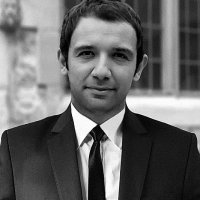Our Comrades in Havana: Cuba, the Soviet Union, and Eastern Europe, 1959-1991
Join Radoslav Yordanov (Harvard University) for a discussion on his book, Our Comrades in Havana. In the immediate aftermath of its successful revolution, Cuba was heralded by socialist nations as the vanguard of communism in Latin America. But by the late 1980s, Havana’s relationship with the Soviet-led socialist bloc had soured over its inability to adopt modes of socialist planning and Mikhail Gorbachev's reforms. Yordanov examines Cuba’s ideological, political, and economic relations with the Eastern European states. Eastern European diplomats were entrusted with the task of educating local Cuban leadership in the intricacies of Marxism-Leninism, steering Cuba's governors onto the "correct path of development," helping them eradicate "erroneous ideas" of economic development, and showing them the validity of socialist "morals and ideology." By analyzing Eastern European diplomats' and specialists’ experiences in Havana from the 1959 Cuban revolutionary victory to the 1991 dissolution of the Soviet Union, he sheds new light on Cuba's role in the global Cold War.
Radoslav Yordanov completed his doctoral studies at Oxford University, defending a thesis on Soviet involvement in Ethiopia and Somalia, 1947–1991. This thesis served as a basis for his first monograph, published in the Harvard Cold War Book Series. Following visiting stints at the Russian Academy of Science’s Institute of World History, Columbia’s Harriman Institute, the Institute of Cuban History in Havana and the Davis Center, Radoslav completed his second book, investigating Soviet Bloc-Cuban relations during the Cold War and published with Stanford University Press (2024). His work has appeared in numerous peer-reviewed journals, including The Journal of Cold War Studies, Third World Quarterly, Journal of Contemporary History, International History Review, International Affairs, Estudios Públicos, Revista Brasileira de Politica Internacional, and Journal of Iberian and Latin American Studies.
The Washington History Seminar is co-chaired by Eric Arnesen (George Washington University) and Christian Ostermann (Woodrow Wilson Center) and is organized jointly by the American Historical Association and the Woodrow Wilson Center's History and Public Policy Program. It meets weekly during the academic year.
Speaker

Panelist

Hosted By

History and Public Policy Program
A leader in making key foreign policy records accessible and fostering informed scholarship, analysis, and discussion on international affairs, past and present. Read more


Cold War International History Project
The Cold War International History Project supports the full and prompt release of historical materials by governments on all sides of the Cold War. Read more


Kennan Institute
The Kennan Institute is the premier US center for advanced research on Eurasia and the oldest and largest regional program at the Woodrow Wilson International Center for Scholars. The Kennan Institute is committed to improving American understanding of Russia, Ukraine, Central Asia, the South Caucasus, and the surrounding region through research and exchange. Read more


